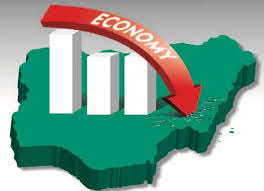Nigeria’s sweeping macroeconomic reforms earned a cautious thumbs-up from global investors at a private forum hosted by the Central Bank of Nigeria (CBN) at Nasdaq MarketSite recently.
The forum, themed “The Nigeria Investment Agenda: Pathways for Growth & Global Partnerships,” was organized in collaboration with the NGX Group, J.P. Morgan, and the African Private Capital Association (AVCA).
It attracted high-level representatives from financial giants such as Citi, JPMorgan Chase, Standard Chartered, and Jadara Capital Partners, keen to hear Nigeria’s pitch directly from its policymakers.
While applauding the reform momentum—particularly the liberalization of Nigeria’s foreign exchange regime—investors made it clear that sustaining inflows would depend on how well Nigeria manages external shocks and structural vulnerabilities.
“Nigeria has made strides, but oil price volatility remains a key risk,” said Joyce Chang, Chair of Global Research at JPMorgan Chase.
Chang praised Nigeria’s removal of fuel subsidies and the move toward a more market-driven exchange rate system, longstanding investor demands that were finally addressed after President Bola Tinubu’s inauguration in 2023.
However, she warned that Nigeria’s macroeconomic outlook must be evaluated against an increasingly hostile global backdrop, including new U.S. tariffs that JPMorgan estimates could shave 3 per cent off global GDP.
“Nigeria is finally at a point where it might be able to break free from the oil cycle,” said Razia Khan, Chief Economist for Africa and the Middle East at Standard Chartered.
She acknowledged that investor concerns about capital repatriation and macroeconomic stability remain but insisted these risks were being mitigated through tighter monetary policy and improved forex market transparency.
Jason Rekate, Global Co-Head of Corporate Banking at Citi, described a notable shift in investor sentiment toward Nigeria.
Nonetheless, Rekate cautioned that Nigeria’s dependence on oil as a “transmission channel” for external shocks remains a key vulnerability, especially if a global downturn materializes.
Meanwhile, Ahmad Zuaiter, Co-Founder and CIO of Jadara Capital Partners, welcomed Nigeria’s reform push but flagged persistent frictions in its capital markets that could blunt enthusiasm.
“Two years ago, virtually no portfolio investors were active in Nigeria due to capital controls,” Zuaiter said. “Today, that has changed, but costs remain prohibitive.”
He attributed much of the gap to regulatory inefficiencies, including stamp duties and inconsistent market interventions.
“Investors need credible signals that the era of sudden capital controls and forex restrictions is over,” he warned.
Since June 2023, the CBN has taken bold steps to reform Nigeria’s forex system, unifying multiple exchange windows and allowing supply-demand dynamics to guide rates.

